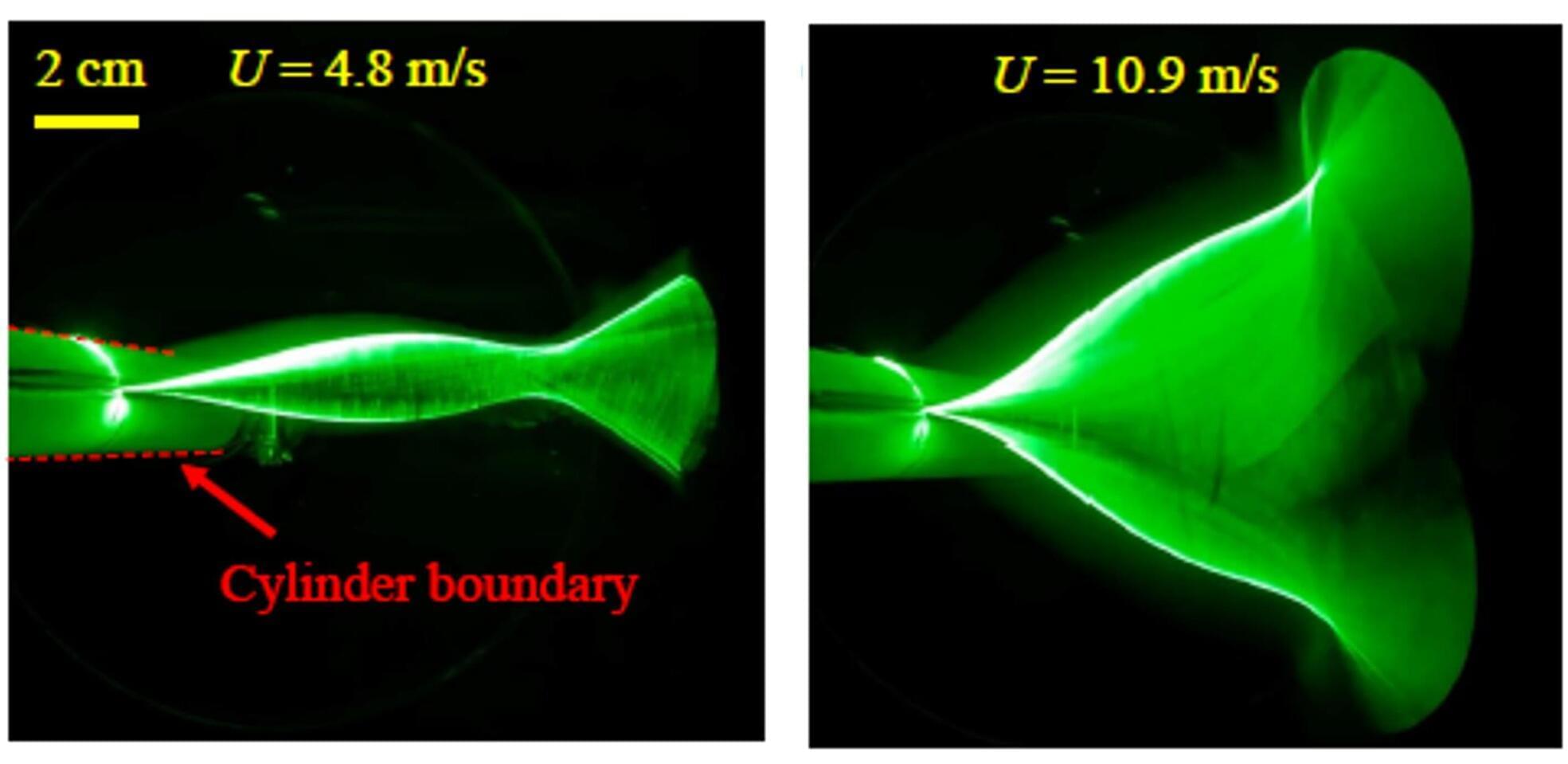When we think about renewable energy, images of sprawling solar farms or towering coastal wind turbines usually come to mind. Yet, there is a quieter, more compact option: a slender strip of material fluttering in the breeze, capable of converting ambient airflow into usable electrical energy.
In our research group, we have been exploring how flexible structures—thin polymer sheets—can convert the energy of ambient flow into electricity using piezoelectric materials. These materials generate an electrical signal when mechanically deformed. Think of them as energy translators—converting flutter and vibration into voltage.
Our work focuses on a simple idea: attach a flexible plate with a piezoelectric sheet to the downstream side of a cylinder and expose it to wind. As wind flows past the cylinder, it causes the attached plate to flutter—much like a flag.



